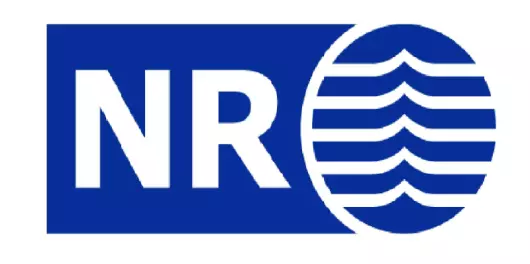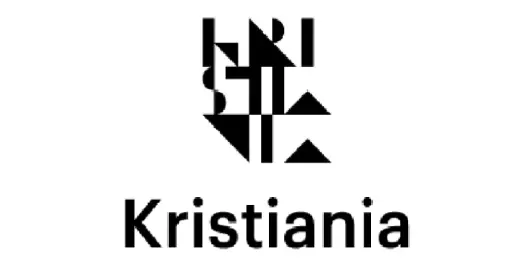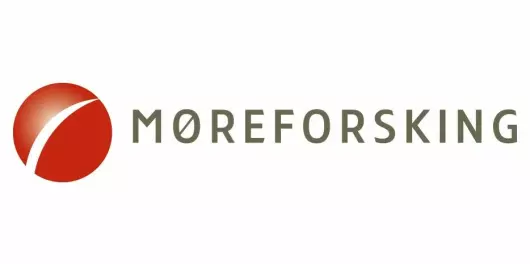Ledig stilling på Universitetet i Oslo
Blindern og Urbygningen (Foto: Wikimedia og Colourbox)
Postdoctoral Fellow in Chemistry / Material Science / Conservation Science
Deadline: 09.11.2021
Universitetet i Oslo
The University of Oslo is Norway’s oldest and highest ranked educational and research institution, with 28 000 students and 7000 employees. With its broad range of academic disciplines and internationally recognised research communities, UiO is an important contributor to society.
The Museum of Cultural History at the University of Oslo is one of Norway's largest museums of cultural history and, in addition to being a museum, it is a university department equal in status to UiO's faculties. It houses Norway's largest archaeological collection of artefacts from pre-history and the Middle Ages, including the Viking ships at Bygdøy, a considerabel collection of medieval ecclesiastical art, a collectionof antiques from the Mediterranean region and an archive of runic inscriptions.
Postdoctoral Fellow in Chemistry/Material Science/Conservation Science: Bio-inspired materials for conservation of archaeological textiles
Job description
The Museum of Cultural History, University of Oslo, (KHM), and the University of Nottingham, are inviting applicants for a two year position as postdoctoral research fellowship in the project "Virtual Reconstruction, Interpretation and Preservation of the Oseberg Textiles" (TexRec). We are looking for an applicant who is attracted by developing new, bio-inspired materials for preservation of archaeological textiles.
The Museum of Cultural History is part of the University of Oslo and houses one of Norway’s largest collections of archaeological artifacts, including the Oseberg find. The Oseberg find, excavated in 1904, represents one of the most important collection of Viking Age objects in the world. The collection includes a number of different textiles, reaching from simple wool fabrics to precious silk embroideries. The fabrics are fragmented and in a fragile condition today. The TexRec project focuses on the over 80 fragments belonging to several different tapestries. The tapestry fragments show scenes with finely crafted human figures, weapons, animals, carriages and houses, as well as geometric symbols. This collection is one of a kind and the fragments therefore constitute a unique source of knowledge about Viking Age design, mythology and textile technology.
The National Centre for Macromolecular Hydrodynamics at the University of Nottingham is a facility for the characterisation of the sizes, shapes and interactions of large macro molecules of biomedical and industrial importance (proteins, polysaccharides, DNA, synthetic polymers etc.) and in the environment that many occur naturally water or aqueous solution. The centre has a long-time standing collaboration with KHM on the development and characterization of bio-inspired conservation materials for archaeological wood.
The successful applicant would be employed at The Museum of Cultural History, University of Oslo. A significant part of the work would be conducted at University of Nottingham (ca 75%).
The position is is for a period of two years and should start 1st of March 2022.
More about the position
The project TexRec is funded by the Norwegian Research Council. The postdoc will be part of a larger, international group of researchers from different fields. The research team consists of chemists, archaeologists, a botanist, conservators, computer scientists and experts in photography and imaging.
The TexRec project will focus on the over 80 fragments belonging to several different tapestries. The project covers a thorough investigation of the fabrics, the development of a computer-assisted virtual reconstruction, archaeological interpretation of the motifs, the development of a suitable preservation strategy and communication of our research to the public.
Project partners are:
- Museum of Cultural History, University of Oslo, Norway
- Norwegian University of Science and Technology, Trondheim and Gjøvik, Norway
- University of Nottingham, National Centre for Macromolecular Hydrodynamics, UK
- DWI Leibniz Institute for Interactive Materials, Aachen, Germany
- University of Bologna, Italy
- University of Bergen, Norway
- Natural History Museum, University of Oslo, Norway
- AGH University of Science and Technology, Krakow, Poland
The postdoctoral fellow will develop bio-inspired/biomimetic materials to consolidate the fragile fibers. The focus would be on cellulose-based materials. This may include cellulose and its derivatives, chitosan, aminocelluloses, nanocellulose and other relevant materials. The developed materials are expected to be applied to textile objects in other collections, too.
If you
- are attracted by an exciting combination of science, technology and historical artifacts
- think that the switch to Green Chemistry is important also in the field of Cultural Heritage, and that the biomimetic approach is a valuable tool in development of new materials
- enjoy working in a cross-disciplinary, international team
- consider to give your career an unusual direction
then do not hesitate to contact us.
The main purpose of the fellowship is to qualify researchers for work in higher academic positions within their disciplines.
Qualification requirements
- PhD degree in chemistry or a related field.
- Good knowledge and skills in preparative organic chemistry
- Good written and oral communication skills
- Fluent oral and written communication skills in English, which is the working language in the project
- Strong interest in cultural heritage is an advantage, but not necessary.
Personal skills
The candidate is expected to be
- able to develop novel research ideas, and to realize them within the project’s framework
- willing and interested in communication and collaboration with project participants from very different working fields
- result- and solution orientated
- well organized and delivers quality results within agreed deadlines
- able to work independently and efficiently
We offer
- salary NOK 534 400 - 615 800 per annum depending on qualifications in position as Postdoctoral Research Fellow (position code 1352)
- the challenge of working in one of Europe’s most comprehensive projects in textile conservation
- an inspiring and friendly working atmosphere in an European network of leading research institutions in chemistry, material science, conservation, computer and imaging science, and archaeology
- attractive welfare benefits
How to apply
The application must include
- cover letter (statement of motivation, summarizing scientific work and research interest)
- CV (summarizing education, academic and relevant non-academic work and activities)
- copies of educational certificates (academic transcripts only)
- a complete list of publications
- copies up to five publications the candidate wishes to be reviewed
- list of reference persons: two references (name, relation to candidate, e-mail and phone number)
The application with attachments must be delivered in our electronic recruiting system. Foreign applicants are advised to attach an explanation of their University's grading system. Please note that all documents should be in English.
In assessing the applications, special emphasis will be placed on the documented, academic qualifications, as well as the candidates motivation and personal suitability. Interviews with the best qualified candidates will be arranged.
Formal regulations
Please see the guidelines and regulations for appointments to Postdoctoral fellowships at the University of Oslo.
No one can be appointed for more than one Postdoctoral Fellow period at the University of Oslo.
According to the Norwegian Freedom of Information Act (Offentleglova) information about the applicant may be included in the public applicant list, also in cases where the applicant has requested non-disclosure.
Inclusion and diversity are a strength. The University of Oslo has a personnel policy objective of achieving a balanced gender composition. We also want to have employees with diverse expertise, combinations of subjects, life experience and perspectives. We will make adjustments for employees who require this.
If there are qualified applicants with special needs, gaps in their CVs or immigrant backgrounds, we will invite at least one applicant in each of these groups to an interview.
Contact information
- Associated professor Hartmut Kutzke, project coordinator TexRec, phone: +47 97985024, E-mail: hartmut.kutzke@khm.uio.no
- Professor Stephen E. Harding, work package leader, phone +44 (0)7811090635, E-mail: steve.harding@nottingham.ac.uk
Apply for position















